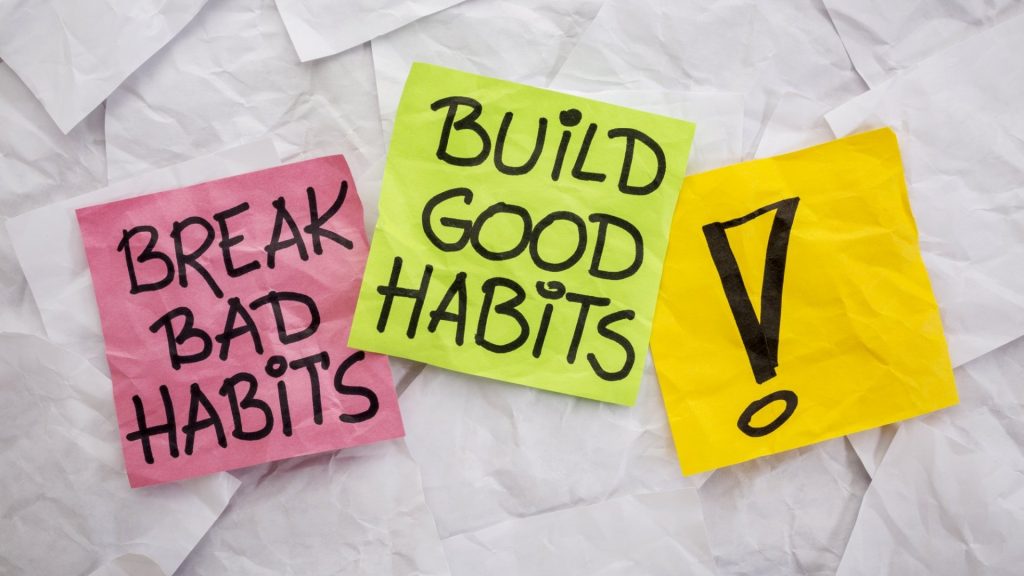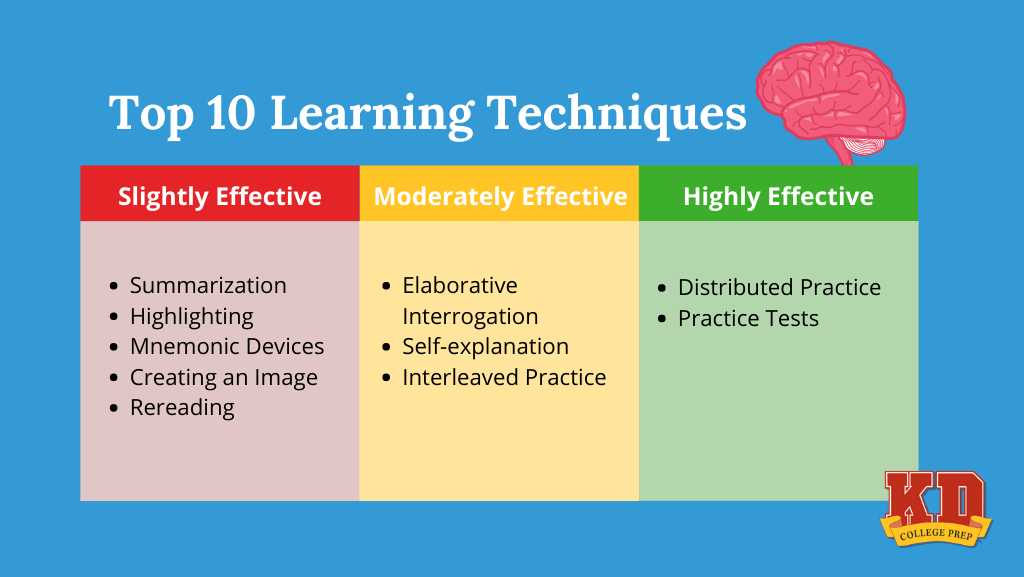Studying effectively is a skill that can make a world of difference in your academic and professional life. Whether you’re preparing for a challenging exam, trying to grasp a new concept, or simply looking to improve your overall learning abilities, the key lies in adopting effective study techniques. In this blog post, we will explore some tried-and-true methods for retaining information faster, complete with examples and practical practices to help you make the most of your study sessions.
1. Active Learning
Active learning involves engaging with the material in a way that promotes understanding and retention. This technique can be broken down into several strategies:
Example 1: Summarization
After reading a chapter or article, create a summary in your own words. This forces you to understand the material and remember the main points.
Practice: After reading a section of a textbook, try to summarize the key points in a few sentences without looking at the text. Check to see if you got it right, and revise your summary as needed.
Example 2: Teaching Others
Teaching is one of the most effective ways to learn. Explain what you’ve learned to a friend, family member, or even an imaginary audience.
Practice: Teach a complex topic to a friend or family member as if they were your students. This exercise can help reinforce your understanding and identify areas where you need more clarity.

2. Spaced Repetition
Spaced repetition is a memory enhancement technique that involves reviewing material at increasing intervals. This method capitalizes on the psychological spacing effect, which suggests that information is better retained when it’s reviewed over time.
Example: Flashcards
Create flashcards with questions or prompts on one side and answers on the other. Review the cards at specific intervals, starting with more frequent reviews and then gradually increasing the gap between them.
Practice: Use digital flashcard platforms like Anki or create physical flashcards. Review them regularly, adjusting the intervals based on your memory of the content.
3. Mnemonic Devices
Mnemonic devices are memory aids that help you remember information through associations or visual cues. They can be particularly useful for remembering lists, sequences, or concepts.
Example: Acronyms
Create acronyms by using the first letter of each item or concept you want to remember. For instance, “PEMDAS” helps remember the order of operations in mathematics (Parentheses, Exponents, Multiplication, Division, Addition, Subtraction).
Practice: When learning a list of items, create an acronym or use existing ones to remember the sequence.
4. Active Note-Taking
Taking notes actively while studying is a proven method to retain information. Instead of passively copying what you read, make your notes concise, organized, and engaging.
Example: Cornell Method
The Cornell Note-Taking System involves dividing your paper into three sections: a narrow left column for cues, a wider right column for notes, and a summary section at the bottom. This system encourages you to review and summarize your notes actively.
Practice: Start using the Cornell Method in your classes or study sessions. After your class or reading, review your notes, add cues, and create a summary.
5. Mind Mapping
Mind mapping is a visual representation of information that helps you see the relationships between concepts and ideas.
Example: Concept Mapping
Create a concept map with the main topic in the center and related subtopics branching out. Connect the ideas with lines or arrows to show how they’re connected.
Practice: Use digital mind mapping tools or draw concept maps on paper. This can be particularly helpful for organizing complex information or planning essays.
6. Breaks and Healthy Habits
Finally, remember that your brain needs breaks and a healthy environment to function optimally.
Practice: Schedule short, regular breaks during your study sessions to avoid burnout. Stay hydrated, maintain a comfortable study environment, and ensure you get enough sleep to consolidate your learning.
Incorporating these effective study techniques into your routine can make a significant difference in how well you retain information. Experiment with these methods to find what works best for you and adapt them to your unique learning style. By actively engaging with the material, using memory aids, and creating a conducive study environment, you’ll find yourself retaining information faster and more efficiently, ultimately leading to improved academic and professional success.

Breaking bad habits to obtain better study results requires a combination of self-awareness, discipline, and effective strategies. Here’s a step-by-step guide to help you achieve this:
Identify Your Bad Habits: Start by recognizing the specific habits that are negatively impacting your study results. These could include procrastination, distractions, lack of organization, poor time management, or unhealthy lifestyle choices.
Set Clear Goals: Define your academic goals and what you want to achieve through better study habits. Having clear objectives will motivate you to change.
Understand the Consequences: Reflect on how your bad habits have affected your academic performance and what you stand to gain by changing them. This can help reinforce your commitment to breaking these habits.
Create a Study Schedule: Plan your study sessions in advance. Establish a routine that includes designated study times, breaks, and leisure activities. This will help you manage your time more efficiently and reduce procrastination.
Minimize Distractions: Identify and remove common distractions from your study environment. This could mean turning off your phone, blocking distracting websites, or finding a quiet place to study.
Use Time Management Techniques: Implement time management techniques like the Pomodoro Technique (25 minutes of focused work followed by a 5-minute break), the Two-Minute Rule, or time blocking to improve your productivity and reduce procrastination.Stay Organized: Keep your study materials and workspace organized. Use tools like planners, to-do lists, and digital apps to track your assignments and deadlines.
Practice Self-Discipline: Develop self-discipline by setting small, achievable goals and gradually building up to bigger ones. Reward yourself for meeting these milestones.Find Accountability: Share your goals with a friend, family member, or a study partner who can help keep you accountable. Peer pressure can be a powerful motivator.
Seek Support: If you’re struggling with breaking particularly stubborn habits, consider seeking help from a counselor, therapist, or a support group.Healthy Lifestyle Choices: Good physical and mental health are crucial for effective studying. Maintain a balanced diet, get regular exercise, and ensure you’re getting enough sleep. These factors can greatly affect your ability to focus and study effectively.
Adapt and Learn from Setbacks: Understand that breaking bad habits is a process, and setbacks are normal. Don’t be too hard on yourself if you slip up. Instead, analyze what caused the setback and adjust your strategies accordingly.
Positive Reinforcement: Reward yourself for reaching milestones and achieving better study results. Celebrate your successes to maintain motivation.
Track Progress: Keep a journal to track your progress and make note of the positive changes you observe in your study habits and results.
Stay Consistent: Consistency is key to breaking bad habits and forming good ones. Stick to your new routines and habits over time.
Remember, breaking bad habits and adopting better study habits is a gradual process that requires patience and persistence. With commitment and the right strategies, you can achieve the study results you desire.
On the other side, building good study habits is essential for obtaining better study results. Here are some effective strategies to help you establish and maintain these habits:
Set Clear Goals: Define specific, achievable academic goals. Knowing what you want to accomplish will give you direction and motivation.
Create a Study Schedule: Develop a consistent study routine by setting regular study times. Treat your study sessions as non-negotiable appointments.
Prioritize Tasks: Prioritize your study tasks based on importance and deadline. Start with the most important or challenging ones first.
Break Tasks into Smaller Steps: Divide your study tasks into smaller, manageable chunks. This makes them feel less overwhelming and allows for steady progress.
Organize Your Workspace: Create a clutter-free and organized study environment. Keep all necessary materials, such as textbooks, notes, and supplies, within easy reach.
Use Effective Study Techniques: Learn and apply effective study techniques like active recall, spaced repetition, summarization, and self-testing to improve your retention and understanding of the material.Stay Consistent: Consistency is crucial for forming good habits. Stick to your schedule even on days when you don’t feel like studying.
- Minimize Distractions: Identify and eliminate distractions in your study environment. This may involve turning off your phone, blocking distracting websites, or finding a quiet place to study.
- Take Regular Breaks: Breaks are important for maintaining focus and preventing burnout. Consider using techniques like the Pomodoro method (e.g., 25 minutes of focused work followed by a 5-minute break).
- Stay Organized: Use tools like planners, to-do lists, or digital apps to track assignments, deadlines, and important dates.
- Seek Help When Needed: Don’t hesitate to seek assistance from professors, tutors, or classmates if you encounter challenging material. It’s a proactive way to enhance your understanding.
- Healthy Lifestyle Choices: Prioritize your physical and mental health. Ensure you get enough sleep, maintain a balanced diet, and engage in regular physical activity. A healthy body and mind are essential for optimal learning.
- Self-Motivation: Find ways to stay motivated, such as rewarding yourself for reaching milestones or reminding yourself of your long-term goals.
- Build a Support System: Connect with classmates, study groups, or friends who are also focused on their studies. Peer support and accountability can be very motivating.
- Regular Review: Periodically review your notes and materials, even after you’ve covered a topic. This helps reinforce your understanding and retention.
- Practice Self-Reflection: Take time to reflect on your study habits and results. Identify what’s working well and what needs improvement, then make adjustments accordingly.
- Stay Patient and Persistent: Building good study habits takes time. Be patient with yourself and persistent in your efforts to maintain these habits.
- Adapt to Changes: As your academic needs change, be willing to adjust your study habits and routines accordingly.
Remember that building good study habits is a process that requires dedication and ongoing effort. Over time, these habits will become second nature and contribute to better study results.
Hope you like and consider we helped you in your studies.
Have a nice day.
